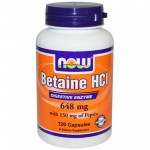Blog Entry #132
By Anthoney J. Andersen – Steroidal.com
If you engage in regular physical activity, then you probably already know how important it is to fuel your body with the proper nutrients it needs in order to push through those strenuous workouts.
The energy obtained from food not only provides our body with the power and endurance it needs to speed through our exercise regimen, but the energy also helps our body reduce inflammation and fight disease.
Many supplements exist to aid in athletic performance – creatine, nitric oxide, protein shakes, etc. – but you’ll be amazed to find out how none of them are as effective as the energy acquired from whole foods.
MUSCLE INFLAMMATION
When you work out your muscles to the point you feel sore the next day, what you’re doing is tearing small muscle fibers that eventually need to heal and repair in order for your body to become stronger.
As your muscle fibers tear, they also become inflamed, which can lead to serious illness if left untreated – cardiovascular disease, certain cancers and autoimmune disorders, to name a few.
According to Healthline.com, omega-3 fatty acids have been found to reduce chronic inflammation and bolster many processes that help with cellular healing.
Flaxseed, which is rich in omega-3s and dietary fiber, is commonly used to improve digestive health, lower cholesterol levels and improve the body’s ability to respond to insulin.
FUEL AND RECOVERY
Current recommendations by the Centers for Disease Control and Prevention (CDC) state that a person who exercises between 60 to 90 minutes a day may need to increase his or her carbohydrate intake.
Foods that are rich in complex carbohydrates – white bread, jelly, peanut butter, crackers, pretzels and pasta – should be the basis of the athlete’s diet.
Protein plays an important role in the growth and repair of muscles during workouts. Protein can also be used to fuel the body with energy, but only after glycogen and carbohydrates have been used up.
Many athletes tend to believe in the notion that the more protein you consume, the more muscle you will build.
However, the researches at WebMD have found this myth to be false.
A high-protein diet alone will not promote muscle growth; only strength training and exercise will alter the size of your muscles.
Athletes, even bodybuilders, only need a little extra protein to fuel their muscles during vigorous exercise. When you take in more protein than your body can digest, your body will store the excess protein as fat.
Too much protein in the diet may also cause your body to become dehydrated because it requires more fluids to compensate for the excess of protein circulating throughout your body.
PROPER FLUID INTAKE
One of the most overlooked nutrients during workouts is the amount of water or fluids being consumed by the athlete.
Water and fluids are vital to keep the body hydrated and at the proper temperature.
According to Healthline.com, a person’s body can lose several litres of sweat during a 1-hour period.
Some ways to ensure your body stays fuelled with enough fluids is as follows:
- Drink plenty of fluids with your meals, even if you’re not planning on exercising.
- Drink roughly 16 ounces of water two hours before your workout.
- Continue sipping water during and after your workout – aim to drink eight ounces every 15 to 20 minutes.
- Drink fluids even when you don’t feel thirsty.
Adults and adolescents should replace any body weight lost during exercise with equal amounts of fluids. WebMD recommends that for every pound lost, you should look to drink 24 ounces of fluid within six hours following your workout.
CONCLUSION
Even though popping a pill or drinking a pre-workout shake may seem like the ideal route to down go, it may not be the most cost efficient way of increasing your energy levels.
By simply increasing the intake of carbohydrates and protein that most of us probably already get in our daily diets, you can enhance your athletic performance without the use of high-end sports supplements.
Consider your options.








